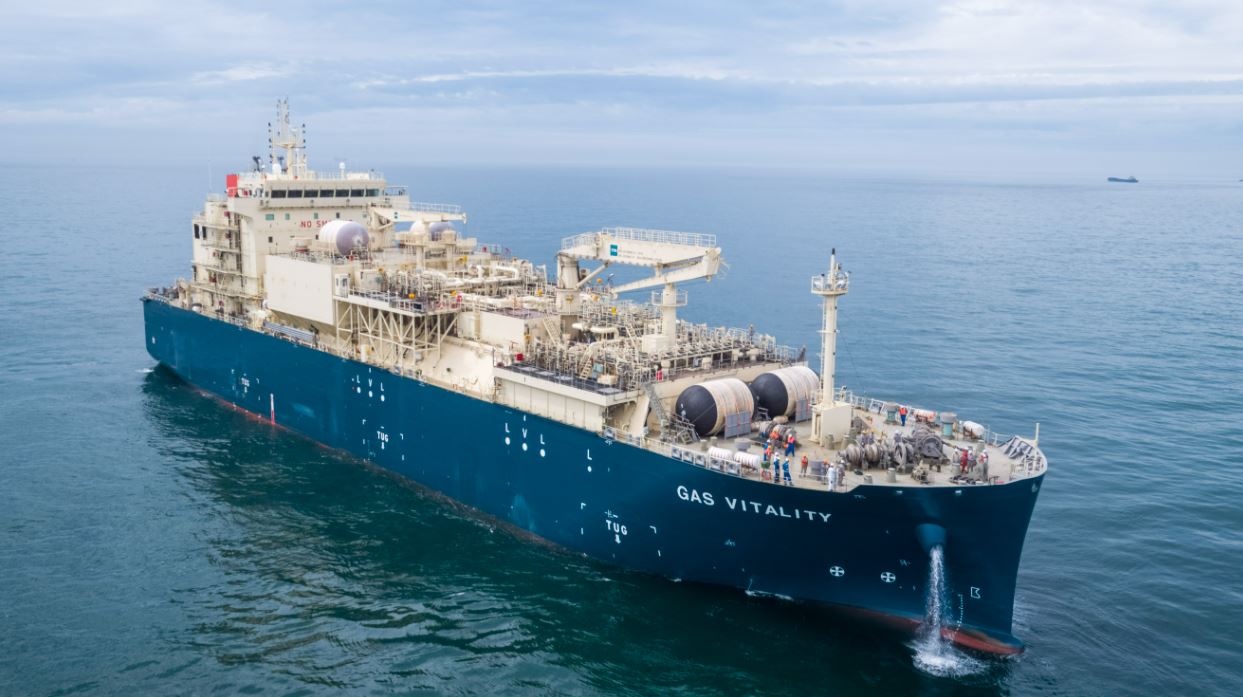French energy giant TotalEnergies still expects that the LNG bunkering market could reach 10 million tonnes a year by 2025, as the global fleet of LNG-powered vessels continues to rise.
TotalEnergies also forecasts the LNG bunkering market would represent 10 percent of the entire bunkering market by 2030, it said in a new white paper named ‘The Drive for Cleaner Marine Fuels’.
With about 245 LNG-powered ships currently in operation, shipping’s transition to LNG “is evident in the continued acceleration of LNG-fueled ship orders,” TotalEnergies said.
According to Clarksons’ October 2021 data, LNG-fuelled vessels represent more than 30 percent of the total gross tonnage on order.
In parallel, a growing fleet of LNG bunkering vessels would fuel these ships.
Today, there are 26 LNG bunkering vessels in operation globally and the fleet would grow to 43 units offering an aggregated capacity of between 7 and 8 million tonnes per year by early 2024, TotalEnergies said.
TotalEnergies’ first chartered LNG bunker vessel – the 18,600-cbm Gas Agility – started serving vessels in Rotterdam last year.
Its sister vessel, Gas Vitality, is also on its way from China to France. The vessel should soon arrive in the Marseille-Fos area in France to serve the Mediterranean region.
Besides these three units, TotalEnergies shares the use of a third bunker vessel in Singapore, where it won a license for LNG bunkering in February this year.
Bio-LNG
As a next step in its evolution, TotalEnergies believes that biomethane, together with LNG, can provide a “viable pathway to achieve shipping’s decarbonization goal.”
The biomethane market is growing and has “huge opportunities” to become a global industry.
In 2020, biomethane production reached about 50 TWh globally via supply from 1,100 operating plants. This production potential could grow to reach a capacity of 8,500 TWh, according to TotalEnergies.
“A study conducted independently by research and consultancy organization, CE Delft, concludes that bio-LNG (liquefied biomethane) is a scalable solution for the maritime sector,” it said.
Estimated sustainable global supplies could potentially exceed the future energy demand of the global shipping fleet.
It also showed that bio-LNG would likely be commercially competitive relative to other low- and zero-carbon fuels, TotalEnergies said.
Furthermore, the expanding LNG-fueled fleet could utilize bio-LNG without needing to undertake any modifications. The existing supply infrastructure would still be fit for bunkering purposes with either fuel when bio-LNG becomes scaled up, TotalEnergies said.
“This benefit alone will help reduce the capital outlay for brand new alternative fuels infrastructure, which it is estimated, could run into trillions of dollars,” it said.

